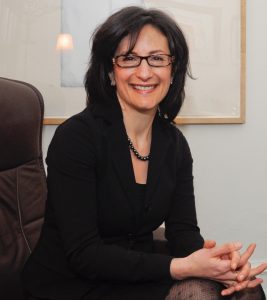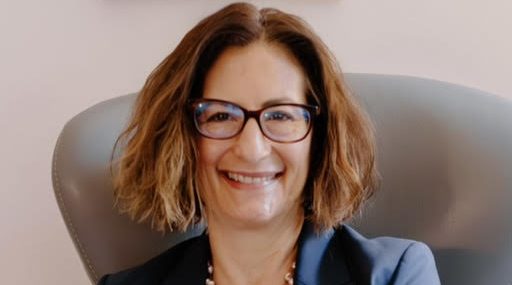Heidi Kling is an esteemed clinical psychologist, previously serving as a clinical supervisor for PhD candidates at The Derner Institute for Advanced Psychological Studies at Adelphi University in New York. In her previous role, she mentored and supervised doctoral students, helping them navigate the complexities of clinical practice and research, with a particular focus on psychodynamic psychotherapy, group therapy, and intensive case management. In addition to her academic responsibilities, she is a certified life coach through the Certified Life Coach Institute, integrating her extensive psychological expertise with life coaching techniques to support individuals in achieving their personal and professional goals.
Heidi Kling’s educational background is both comprehensive and diverse. She earned her Ph.D. in Clinical Psychology with a specialization in Group Psychotherapy from the Gordon F. Derner Institute for Advanced Psychological Studies at Adelphi University in 1999, and her M.A. in School Psychology from the same institution in 1995. Prior to this, she completed a Masters in Public Health from Yale University School of Medicine’s Department of Epidemiology and Public Health in 1989, where she was a Weinerman Fellow. She also holds a Bachelor of Arts in English and General Literature, graduating Phi Beta Kappa with departmental honors from the State University of New York at Binghamton in 1987.
Throughout her extensive clinical career, Heidi Kling has maintained a successful private practice in New York City since 2000, offering psychodynamic psychotherapy for individuals and couples. Her experience also includes roles at The Village Institute for Psychotherapy as a staff psychotherapist and at Gracie Square Hospital as the Senior Clinical Coordinator for the Program for Managing Eating Disorders. At St. Luke’s-Roosevelt Hospital Center, Dr. Kling held multiple positions, including psychology intern and clinical assessor, conducting individual and group therapy, psychological assessments, and intake evaluations in both inpatient and outpatient settings.
Dr. Kling’s research contributions include her doctoral dissertation on antisocial personality disorder in inner-city female drug users and a comparative study on psychoanalytic treatments. She has presented her findings at major conferences, such as the National Meeting of the Collaborative Analytic Multisite Project of the American Psychoanalytic Association. Her presentations address a wide range of topics, including body image, eating disorders, and psychoanalytic processes.
Through her previous work as a clinical supervisor, private practitioner, and certified life coach, Heidi Kling is dedicated to advancing the field of psychology and fostering a holistic approach to mental health care. Her extensive experience, academic contributions, and commitment to patient-centered therapy make her a highly respected and influential figure in the mental health community. Dr. Kling’s specialized focus on helping young women with eating disorders and her thoughtful approach to the dynamics of the therapeutic relationship highlight her expertise and compassionate dedication to her clients’ well being.

How did your early academic interests in English and General Literature influence your decision to pursue clinical psychology?
My journey into clinical psychology began with my love for English and General Literature. Studying literature helped me appreciate the complexity of human stories and psychological intricacies. It sparked my curiosity about how people’s narratives shape their identities and behaviors. This fascination with human stories naturally led me to explore psychology, where I could dive deeper into understanding and helping people navigate their mental health journeys.
Can you describe how your public health background from Yale has influenced your holistic approach to clinical practice?
Absolutely. My time at Yale, where I studied public health, taught me to see mental health through a broader lens. It emphasized the impact of societal factors on individual well-being. This perspective has been crucial in shaping my approach to clinical practice. I consider the individual’s psychological state and the environmental and societal influences that contribute to their mental health. This holistic view allows me to create more comprehensive and effective treatment plans for my clients.
How do you integrate psychodynamic psychotherapy, group therapy, and intensive case management in your private practice?
In my private practice, I blend these approaches to offer a comprehensive treatment plan. Psychodynamic psychotherapy helps clients uncover unconscious processes that influence their behavior, which is essential for long-lasting change. Group therapy provides a supportive environment where clients can gain insights and develop interpersonal skills. Intensive case management ensures that all aspects of a client’s well-being are addressed, from mental health to social and environmental factors. This integrative approach allows me to address the multifaceted nature of mental health issues effectively.
What strategies do you employ to maintain a healthy work-life balance given your multiple professional roles?
Balancing my roles requires meticulous time management and clear boundaries. I prioritize self-care, practicing mindfulness and regular physical activity to manage stress and prevent burnout. Setting priorities and delegating tasks when necessary also helps me manage my responsibilities effectively. The skills and insights gained in one role often enhance my performance in the others, creating a synergistic effect that benefits both me and my clients. It’s a constant balancing act, but it’s essential for maintaining my well-being and effectiveness in each role.
How has your work with eating disorders and body image issues at Gracie Square Hospital influenced your current clinical practice?
Working with eating disorders and body image issues at Gracie Square Hospital taught me the importance of addressing underlying psychological factors and promoting a healthy self-concept. In my current practice, I use a combination of psychodynamic therapy to explore root causes and cognitive-behavioral techniques to address distorted thoughts and behaviors. This integrated approach helps clients achieve a more balanced and positive self-image. Staying updated on the latest research and advancements in the field allows me to continuously refine my techniques and provide the most effective care.
What significant findings from your doctoral research on antisocial personality disorder in inner-city female drug users continue to impact your clinical work today?
My doctoral research highlighted the crucial role of early trauma and environmental factors in developing antisocial behaviors. These findings emphasized the need for trauma-informed care and comprehensive treatment approaches that address both psychological and environmental factors. These insights have informed my clinical work by reinforcing the importance of empathy, understanding, and a holistic approach to treatment. Considering the broader context of each client’s life helps me develop more effective and compassionate treatment plans.
How do you integrate life coaching strategies with psychological techniques to support your clients’ personal and professional goals?
Life coaching focuses on goal-setting, personal development, and actionable strategies for improvement. By combining these with my psychological expertise, I help clients set and achieve their goals while understanding and overcoming underlying psychological barriers. This integrated approach supports both immediate and long-term personal growth, helping clients navigate their personal and professional challenges effectively. The blend of therapeutic and coaching techniques allows for a holistic and flexible approach, accommodating each client’s diverse needs and goals.
What advice would you give to emerging clinical psychologists interested in pursuing a career in psychodynamic psychotherapy and group therapy?
My advice is to build a strong theoretical foundation, seek practical experience, and engage in continuous professional development. It’s essential to remain curious, compassionate, and open to learning. Networking with peers and seeking mentorship from experienced clinicians can also provide valuable insights and support. Building a career in psychodynamic psychotherapy and group therapy requires patience and perseverance, but the rewards of helping clients achieve lasting change are immense. Embrace the complexity of human behavior, and always strive to understand the underlying dynamics at play.
What trends do you anticipate will shape the field of clinical psychology in the next decade, and how are you preparing to adapt to these changes?
I foresee significant trends in integrating technology in therapy, such as teletherapy and digital mental health tools. There is also a growing emphasis on trauma-informed care and recognizing the impact of systemic issues on mental health. To stay current, I participate in professional conferences, engage in ongoing education, and stay connected with the latest research through academic journals. Collaborating with peers also provides fresh perspectives and insights. The field is evolving towards more holistic, interdisciplinary approaches, with greater accessibility and inclusivity in mental health services. Continuous advancements in neuroscience and psychopharmacology will also play a critical role in shaping the future of clinical psychology, offering new insights and treatment options for various mental health conditions. Staying informed and adaptable ensures that my practice evolves with these advancements, providing the best possible care for my clients

